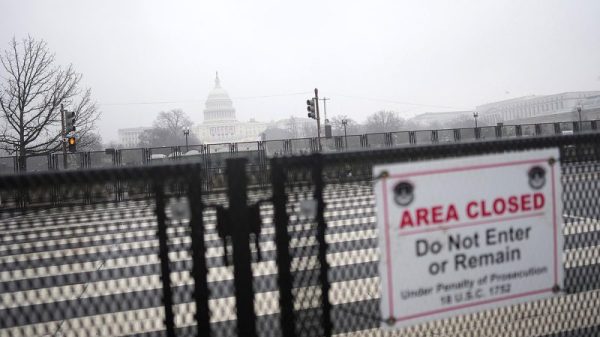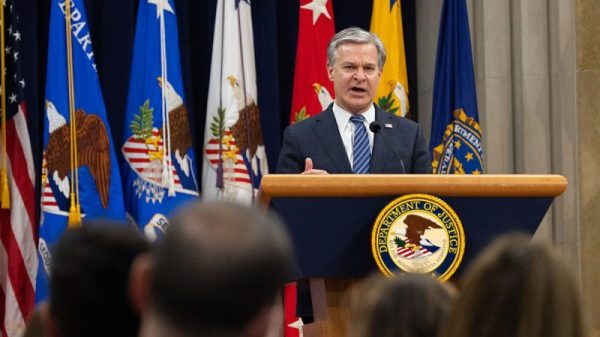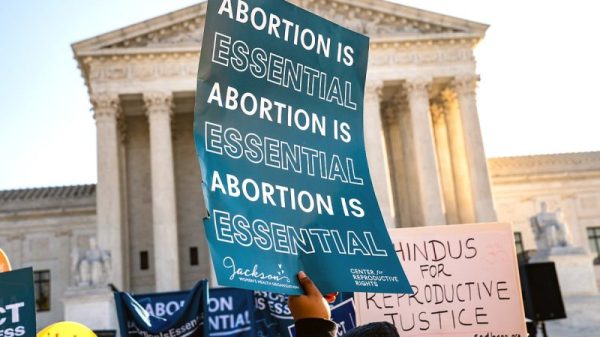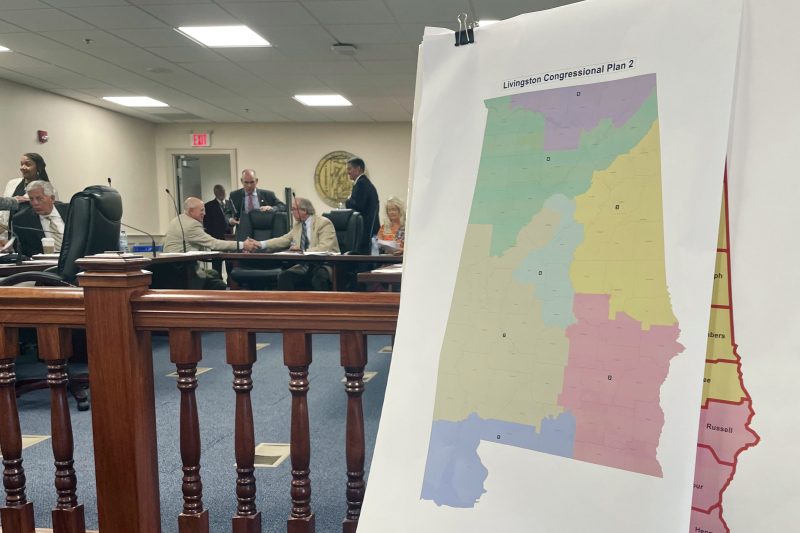Alabama has filed an emergency application to the U.S. Supreme Court asking the justices to freeze a lower-court ruling that the latest version of the state’s congressional map still illegally diluted Black voting power.
In Monday night’s emergency filing, the state asked the court to pause the lower court’s decision by Oct. 1 to prepare for upcoming elections.
Alabama’s request sets the Supreme Court up to revisit the issue of voting rights in the state just three months after the justices unexpectedly rejected an earlier version of Alabama’s congressional districting map, citing the Voting Rights Act, a landmark 1965 civil rights law.
The Supreme Court’s actions in the Alabama case could have broader national implications, as other maps in several Southern states face challenges on the same grounds.
Democrats and civil rights groups have brought lawsuits arguing that Republicans are drawing maps that do not comply with the Voting Rights Act. Court-ordered changes to these electoral maps could shift the political makeup of state and federal legislatures, including Congress.
After the Supreme Court struck down Alabama’s earlier map in June, the Republican-controlled Alabama legislature was tasked with redrawing boundaries that complied with orders from a lower court to establish a second majority-Black district in the state or something “close to it.”
The legislature in July approved a map that increased Black voters in one of the state’s majority-White congressional districts from around 30 percent to 40 percent. The map was approved by Alabama Gov. Kay Ivey (R), who at the time said the legislature “knows our state, our people and our districts better than the federal courts or activist groups” and that the lawmakers “answered the call” with the revised map.
A panel of three federal judges last week subsequently rejected the congressional map the Alabama legislature approved in July. They wrote in their order that they were “deeply troubled that the State enacted a map that the State readily admits does not provide the remedy we said federal law requires.” The legislature’s latest map, they said, failed to provide Black Alabamians “a fair and reasonable opportunity to elect candidates of their choice.”
In last week’s order, the panel of judges directed a special master and cartographer to propose three new districting plans that are legally compliant. The plans are due to be filed no later than Sept. 25.
Attorneys representing Alabama wrote in Monday’s request for emergency relief that if the Supreme Court does not issue a stay, “the state will have no meaningful opportunity to appeal before the 2023 plan is replaced by a court-drawn map that no state could constitutionally enact.”
If the Supreme Court were to pause the lower court’s ruling, the filing said, it would preserve “the opportunity for the legislatively enacted 2023 plan to be used in the upcoming election, rather than a court-drawn, race-segregated plan.”































